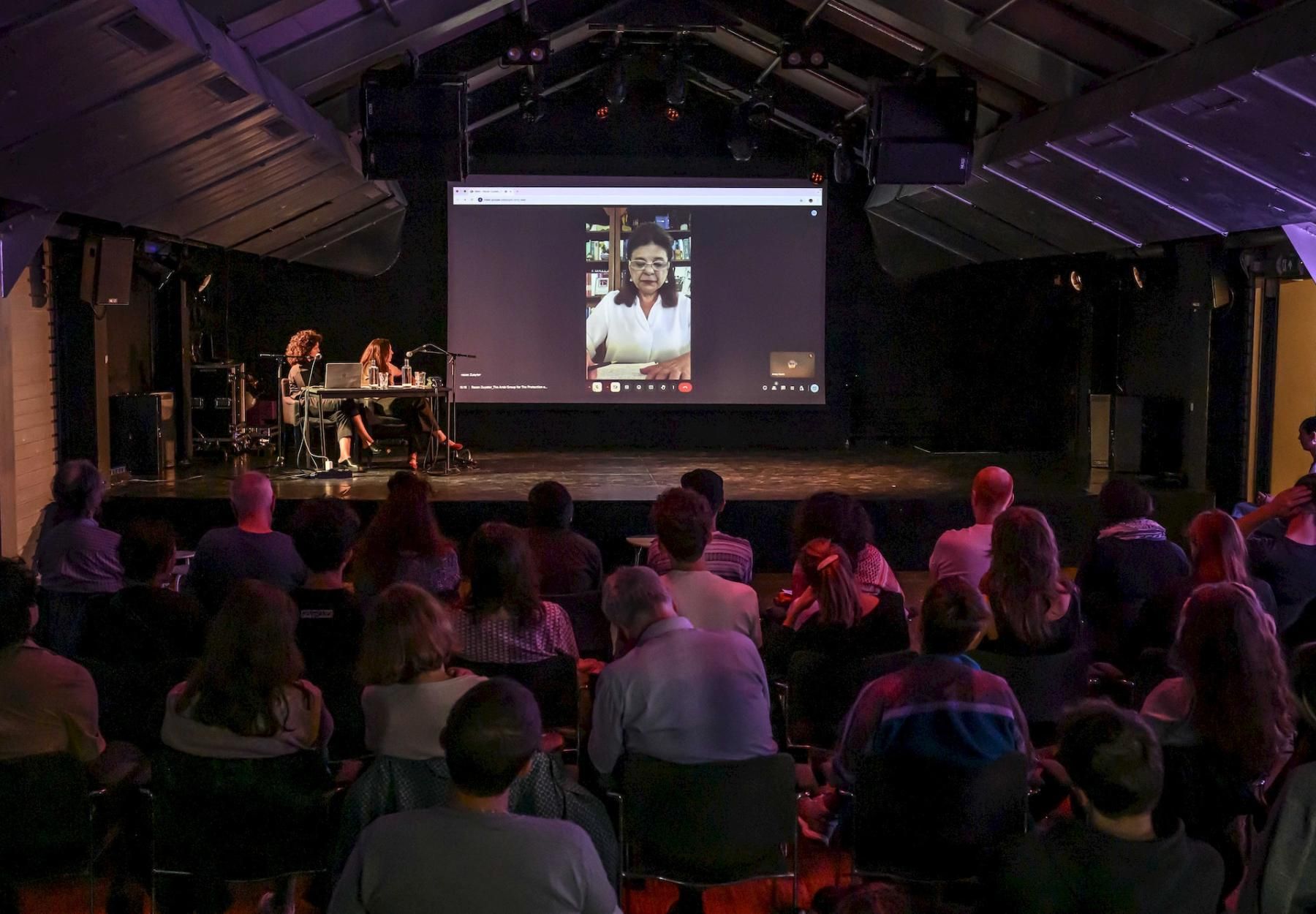
APN | Brussels
26 May 2025
APN Chairperson, Razan Zuayter, participated in a session held as part of the Free School program accompanying the international Kunstenfestivaldesarts in Brussels. She delivered a lecture highlighting the APN’s pioneering work, including the Revive Gaza’s Farmland project which aims to counter the systematic war of starvation imposed by the Israeli occupation in Gaza.
Her participation came through the initiative "Golo Besmlah", launched by Noura Al Khasawneh and Areej Al-Huneiti, which seeks to mobilize artists and cultural practitioners to reclaim narratives of food sovereignty through self-organized film screenings, with proceeds directed to support APN’s Revive Gaza’s Farmland project.
During the session, Zuayter reflected on APN’s journey, which began over two decades ago as a grassroots movement and has since evolved into a leading regional institution. The organization has planted over 3,250,000 fruit trees across Jordan, Palestine, and Lebanon as part of its efforts to promote food sovereignty and resist land fragmentation.
She also shed light on the Revive Gaza’s Farmland project, which provides direct support to small farmers by supplying them with essential agricultural inputs, enabling them to rehabilitate their remaining orchards and cultivate every arable piece of land despite the siege and ongoing systematic destruction.
Zuayter discussed the historical and current conditions of Palestinians under a settler-colonial and apartheid regime, and spoke about the use of the environment and food as weapons by the occupation. She referred to what she calls “green resistance” as a tool for survival and steadfastness. She also addressed the role of colonial consulates in commodifying land and burdening Arab farmers with debt, which paved the way for land dispossession.
It is worth noting that Kunstenfestivaldesarts is one of the most prominent international festivals for contemporary performing arts. Held annually in Brussels each May, it brings together artists from around the world. The festival is known for its spatial diversity and its parallel cultural program, particularly the Free School, which provides a platform for dialogue and the exchange of artistic and intellectual practices among artists, audiences, and civil society.